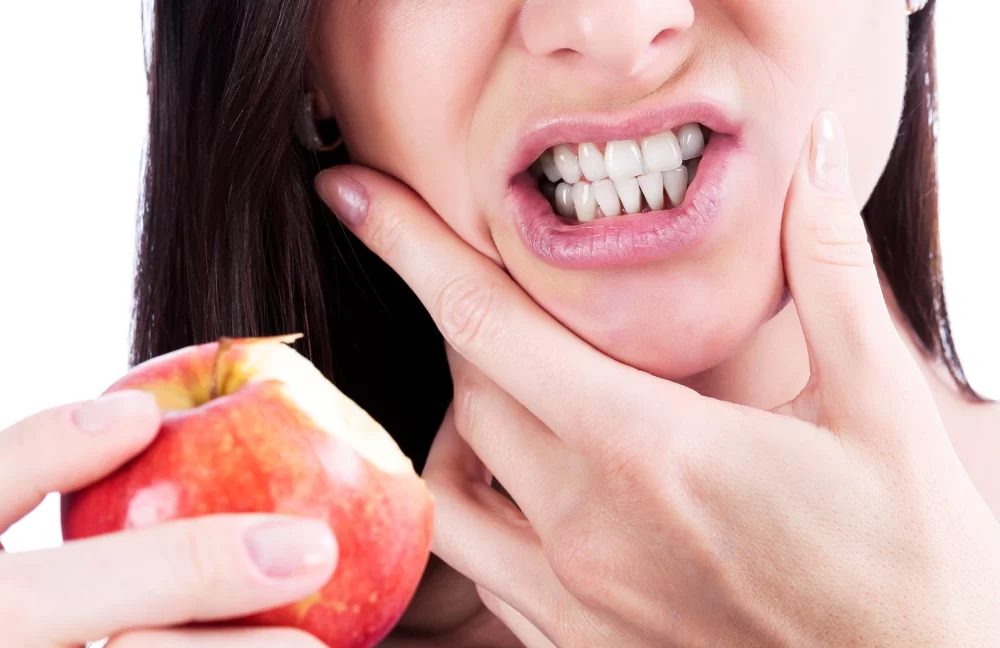
- Common Causes of Tooth Pain When Biting
- Tooth Decay and Cavities as a Cause
- Damaged Fillings and Cracks in Teeth
- Gum Disease and Inflammation
- Tooth Sensitivity and Its Role
- Professional Diagnosis and Treatment Options
- Practical Tips for Managing and Preventing Pain
- Product Recommendations from Dentistry Toothtruth
1. Common Causes of Tooth Pain When Biting
Experiencing tooth pain when biting can be alarming and uncomfortable. The sensation often indicates an underlying dental issue that needs attention. Understanding the causes of tooth pain when biting is the first step to addressing the problem effectively. This pain can stem from various sources, including tooth decay, cracks, gum disease, or sensitivity.
Different types of pain—sharp, dull, or throbbing—can help identify the root cause. For instance, sharp pain might suggest a cracked tooth, while a dull ache could indicate an infection. Knowing these distinctions empowers you to seek timely care and avoid complications.
1.1 How Biting Pain Affects Daily Life
Even mild discomfort when chewing can disrupt eating habits and diminish the enjoyment of meals. Ignoring tooth pain may lead to worsening conditions, prolonged treatment, and increased costs. Therefore, recognizing early symptoms and understanding potential causes is essential for maintaining oral health.
2. Tooth Decay and Cavities as a Cause
One of the most common reasons behind pain when biting is tooth decay. Cavities form when acids from plaque bacteria erode the tooth enamel, exposing sensitive layers underneath. When biting down, pressure on these damaged areas triggers pain.
If untreated, decay can reach the pulp—the tooth’s nerve center—resulting in intense pain and possible infection. Early detection through regular dental visits can prevent progression and preserve the tooth.
2.1 A Personal Story: John’s Experience
John ignored mild biting discomfort for months until the pain became severe. A dental exam revealed deep cavities requiring root canal treatment. His story highlights the importance of addressing even minor tooth pain promptly to avoid extensive procedures.
3. Damaged Fillings and Cracks in Teeth
Existing dental work like fillings can fail over time. Cracks or fractures in teeth, often caused by injury or grinding, also lead to pain when biting. These defects allow pressure to reach the inner nerves or cause irritation to the surrounding tissues.
Sometimes, cracks are so fine they are hard to detect without professional examination and specialized imaging. Ignoring these signs can cause the crack to worsen, potentially leading to tooth loss.
3.1 Cracked Tooth Syndrome
This condition involves a crack too small to see but enough to cause discomfort, especially when chewing. Patients may notice pain that comes and goes, making it tricky to diagnose without expert dental care.
4. Gum Disease and Inflammation
Inflamed or infected gums can cause discomfort that intensifies when biting. Gum disease leads to tissue damage and exposes tooth roots, which are sensitive to pressure. This results in pain during chewing or biting.
Gum disease is often accompanied by bleeding, swelling, and bad breath. Managing gum health through good oral hygiene and professional cleanings reduces biting pain caused by inflammation.
5. Tooth Sensitivity and Its Role
Tooth sensitivity occurs when the protective enamel wears away or gums recede, exposing dentin. This condition causes sharp pain from stimuli such as cold, heat, or pressure from biting.
While sensitivity can be temporary or mild, it may indicate underlying problems requiring treatment. Using sensitivity toothpaste and avoiding aggressive brushing can help alleviate symptoms.
6. Professional Diagnosis and Treatment Options
Because biting pain can originate from multiple issues, a thorough dental evaluation is crucial. Dentists employ tools such as X-rays and clinical exams to pinpoint the exact cause.
Treatment varies depending on diagnosis—from fillings and crowns for decay or cracks to deep cleanings and medication for gum disease. Early intervention not only relieves pain but prevents further damage.
6.1 When to See a Dentist Immediately
Severe, persistent pain, swelling, or fever alongside tooth pain demands urgent professional care. Delaying treatment risks complications like abscess formation.
7. Practical Tips for Managing and Preventing Pain
While awaiting dental care, certain practices can help reduce discomfort:
7.1 Pain Relief Strategies
Over-the-counter pain medications, warm saltwater rinses, and avoiding hard or sticky foods can ease symptoms temporarily.
7.2 Preventive Measures
Maintaining excellent oral hygiene, regular flossing, and routine dental check-ups are key to preventing many causes of tooth pain when biting.
8. Product Recommendations from Dentistry Toothtruth
Choosing the right oral care products can make a significant difference in preventing and managing tooth pain. Dentistry Toothtruth offers a carefully selected range of dental supplies, including sensitivity toothpastes, floss designed for sensitive gums, and protective mouthguards for those who grind their teeth.
Consulting their experts can help you find the most suitable products tailored to your specific needs, ensuring effective care and relief.







 Perfect Teeth Dental - South 8th4.0 (280 review)
Perfect Teeth Dental - South 8th4.0 (280 review) The Smile Institute Advanced Dentistry & Orthodontics4.0 (256 review)
The Smile Institute Advanced Dentistry & Orthodontics4.0 (256 review) Ray Dental Group4.0 (338 review)
Ray Dental Group4.0 (338 review) Pennsylvania Endodontic Specialists4.0 (155 review)
Pennsylvania Endodontic Specialists4.0 (155 review) Oral Sleep Appliances, LLC0.0 (0 review)
Oral Sleep Appliances, LLC0.0 (0 review) The Importance of Oral Health Education During Pregnancy for a Healthy Pregnancy
The Importance of Oral Health Education During Pregnancy for a Healthy Pregnancy Best Tips for Brushing Your Teeth Properly for Healthy Gums: Essential Techniques for Oral Health
Best Tips for Brushing Your Teeth Properly for Healthy Gums: Essential Techniques for Oral Health Why Skipping Dental Checkups Can Lead to Bigger Oral Health Problems
Why Skipping Dental Checkups Can Lead to Bigger Oral Health Problems Advantages of Porcelain Dental Restorations
Advantages of Porcelain Dental Restorations How Can Diabetes Cause Tooth and Gum Problems? Preventing and Managing Oral Health Issues
How Can Diabetes Cause Tooth and Gum Problems? Preventing and Managing Oral Health Issues Healthy Habits for Promoting Good Oral Health and Hygiene: Tips for a Healthy Smile
Healthy Habits for Promoting Good Oral Health and Hygiene: Tips for a Healthy Smile